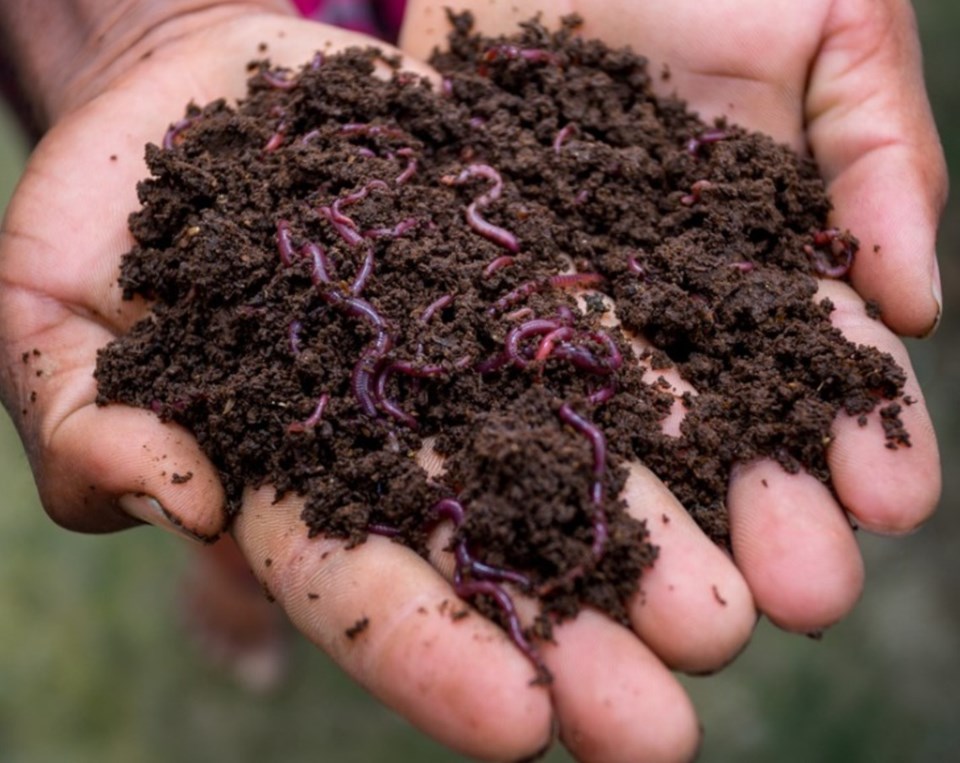For the past couple of weeks, we have been focusing on soils and that amazing entity we call the Soil Food Web. Our world is complex with some of the most important organisms being so tiny we cannot even see them. However, these tiny critters are essential to life as we know it and we would most likely not be able to live our lives very easily without the healthy soils that we work so hard to maintain. Let’s look at some of the larger but also very important critters making up the soil food web and a few ways to ensure your soils are kept healthy.
Worms in the soil food web use interesting techniques to survive winter. Before the soil freezes, common earthworms will burrow deeper into the subsoil below the frost line. They can often be found down as deep as six feet. They form a slime-coated ball and hibernate is a state that is called estivation. As they are encased in mucous, they can survive for long periods without moisture until the spring temperatures wake them from their slumber. Other earthworms lay eggs in cocoons that hatch when spring arrives while others manufacture an antifreeze-like compound in their internal fluids that allows them to supercool their body temperature to 15 C.
Ensuring garden areas are heavily mulched is the best way to keep soils healthy. Deep mulch on the soil surface helps to reduce temperature fluctuations in the soil over the winter months and due to their insulative capacity decreases the amount of freezing in the soil. If you are fortunate to live in an area that has less severe temperatures and does not have the deep freeze and snow for many months, it is important to avoid watering the mulched areas as this reduces the insulative capacity. Covering the soil prior to winter reduces the exposure of the soil and stops it from being relocated in heavy winds. Gardeners who use a surface organic mulch, create a higher percentage of organic matter in the soil – without any extra effort. Those amazing little critters making the soil food web, help to decompose the organic mulch making nutrients more available to plants and of course improving the tilth of the soil itself.
Composting is always a good idea as it provides organic matter high in nutrients to the soil for further decomposition. Remember that successful composting requires organic matter, moisture, oxygen and bacteria to allow the rotting to occur. The organic matter is made of a mixture of brown materials like fall leaves that supply carbon and green materials like grass clippings or salad waste that provide nitrogen. The best ratio is 1-part green to 1-part brown material. Shredding, chopping or mowing these materials into smaller pieces will help speed the composting process by increasing the surface area of what is being composted. In winter, it is always an option to move the composting indoors with vermicomposting!
In severe climates, the compost pile will not continue to “work” as the temperatures become too cold and the compost pile is rarely large enough to allow for enough heat to be generated. However, my compost pile on the cattle farm was definitely large enough to keep it working well into January. The cattle would congregate on the compost pile on cold days to enjoy the heat that was emanating from the work being done within. In warmer areas, continue to add moisture to your compost pile to allow the work to continue as long as possible.
Leaves are your friend in any garden area. They mat up and fall rains and early snows help to stick them together and keep them on the soil surface. Smaller particles will always rot faster and adding chopped leaves to the compost is a great idea. Decomposed leaves feed the soil and provide beneficial environments for some of our other critters who are looking for a warmer place to spend the winter.
Make this year the growing season where you always remember about the soil food web and provide all the ingredients for a healthy soil!
Hanbidge is the lead horticulturist with Orchid Horticulture. Find us at www.orchidhort.com; by email at [email protected]; on facebook @orchidhort and on instagram at #orchidhort.
Tune into GROW Live, weekly on our Facebook page https://www.facebook.com/orchidhort or check out the Youtube channel GROW https://www.youtube.com/channel/UCzkiUpkvyv2e2HCQlFl0JyQ?




